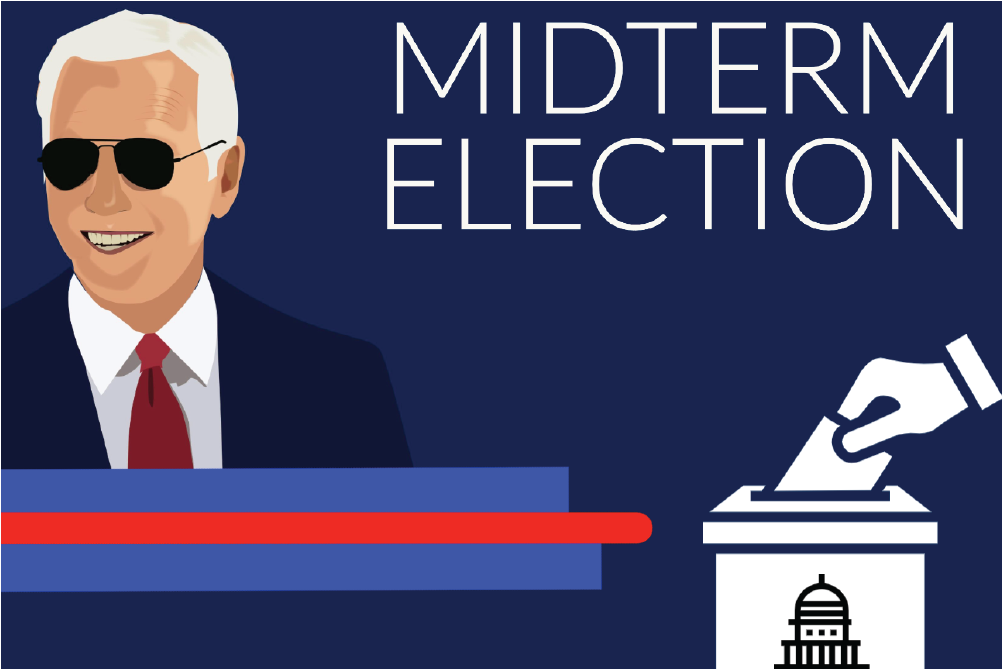Despite President Biden’s low approval rating, four decades of high inflation and rising crime rates nationwide, there’s miraculously still hope for Democrats this election season. The midterms determine which party controls Congress and history hasn’t been kind to the incumbent president’s party.
According to the Brookings Institute, President Bush’s Republicans lost 30 seats in the House of Representatives and six seats in the Senate in 2006. In 2010, President Obama’s Democrats lost a whopping 63 seats in the House and six seats in the Senate. President Trump’s Republicans suffered a similar fate in 2018.
History typically repeats itself. This is largely due to swings in voter motivation, switching each election cycle. So what motivates people to vote? According to a University of Michigan study, anger significantly motivates voters. According to a Michigan State University study, altruism, personal duty and belonging are equally relevant motivators.
A typical election cycle places the momentum with voters who want to vote against the White House. According to Pew Research, midterm turnout has lagged behind presidential election turnout since 1840, and the people who’ve shown up to vote are partisans. This block of voters is emotionally motivated, while the incumbent party is more complacent and often abstains.
However, this isn’t a typical election cycle, and Democrats aren’t destined to suffer a traditional fate. Both Republicans and Democrats have motivating issues such as the economy, gun policy and energy policy, but the key to this election will be those that influence specific subsets of voters: independents and swing voters. Independents neither fully support Democrats or Republicans completely, and swing voters choose candidates on a year to year basis.
This group typically skips midterm elections. According to Pew Research, 7% of American voters are Independents who don’t lean toward either party. Only 33% of this group reportedly voted in 2018, due to a lack of emotional motivation. This year, these voters will actually have the emotional and personal motivation to vote, due to three key issues.
First, the Supreme Court’s ruling in the Dobbs v. Jackson case is the most important motivator for the Democrats this fall. In a NPR/PBS national poll, abortion was the second most important issue to voters at 22%, only behind inflation at 30%.
According to Gallup, a staggering 84% of Independents believe abortion should be legal in some form, even though 39% claimed to be pro-life. According to the Wall Street Journal, this has caused the Independent voter’s approval of the Democratic Party to surge. The most important Independent swing voters are suburbanites, and especially suburban women. The Washington Post reported that more women are registering to vote than men in key states, and that their reasoning ranges from fear to anger.
Second, the White House’s standing is improving; they’ve passed a slew of legislation which includes the long-awaited Inflation Reduction Act. Since then, FiveThirtyEight reports that Biden’s approval rating has increased 5 points overall, while jumping 10 points among Independents. His economic performance has jumped nearly 10 points as well.
Third, the Republicans’ reliance on former President Trump, his brand of politics and the slew of questionable candidates he has endorsed is working against Republicans. According to a University of Virginia study, swing voters favored Joe Biden over Donald Trump by about a two-to-one margin in 2020. According to NPR, two-thirds of Independent voters do not support Trump.
Trump isn’t technically on the ballet, but Democrats and Republicans are making the former president front and center. Anti-Trumpism is effective fuel to fire up voters, especially by keeping the Jan. 6 investigations and his other legal troubles in the spotlight. NPR reports that 57% of Independents believe Trump is to blame for Jan. 6 while the majority of voters believe Biden fairly won the election. Most Republican candidates have supported his conspiracy theories and embraced his political rhetoric. Election deniers, insurrections and those who support such characters will have a hard time gaining Independent support.
Independents and swing voters hold the election in their hands. If they turnout this November, which seems likely, they will reverse the historic trend of incumbent failure. But nothing is certain; it’s up to the voters to decide the outcome of this election.




